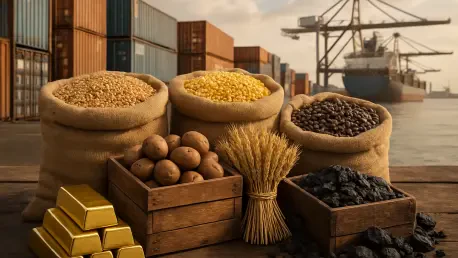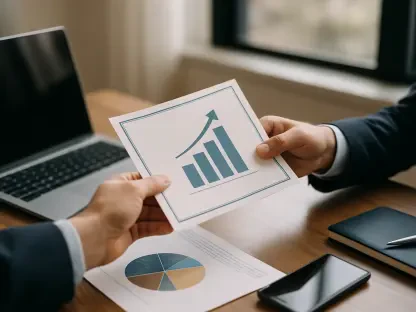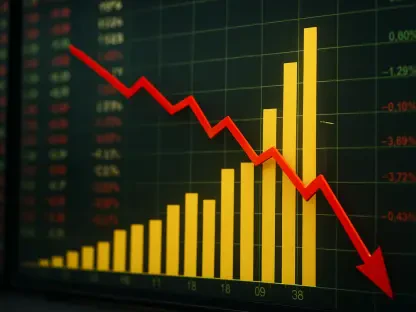In a world where economic disparities continue to challenge global equity, a landmark event hosted by Ghana International Bank (GHIB) from August 6–8 in the City of London has ignited fresh hope for Africa’s economic future. This pivotal forum, held under the banner of reimagining commodity trade, convened an impressive array of stakeholders—policymakers, financiers, industry executives, and development experts from across Africa and beyond—to confront a longstanding issue: the continent’s over-reliance on raw commodity exports. With the theme “Rethinking Commodity Finance for Growth,” the event underscored the urgent need to pivot toward value-added trade, a transformation seen as essential for unlocking vast economic potential. GHIB CEO Dean Adansi pointed to a stark reality—only 14% of Africa’s exports are currently processed, representing billions in lost revenue. The discussions painted a clear picture of opportunity, focusing on how turning raw materials like cocoa, gold, and cashews into finished goods could drive growth, create jobs, and stabilize economies across the region.
Unlocking Economic Potential through Value-Addition
The push for value-addition stood out as a cornerstone of the discussions, framed as an economic imperative for African nations. Leaders like Dean Adansi emphasized that the continent cannot afford to remain a supplier of unprocessed materials while missing out on the higher revenues tied to finished products. The vision is straightforward yet transformative—converting cocoa beans into chocolate, raw gold into refined bullion, and cashew nuts into packaged kernels domestically. Such a shift promises not only increased export earnings but also significant job creation and enhanced economic resilience. Support for this transition was evident in calls for leveraging frameworks like the African Continental Free Trade Area (AfCFTA), which aims to ease the movement of processed goods across borders. This regional integration is seen as a catalyst for amplifying the impact of local processing, ensuring that the benefits of value-addition are felt continent-wide rather than confined to individual nations.
Central bank officials added depth to this narrative by showcasing actionable strategies already in motion. Dr. Zakaria Mumuni from the Bank of Ghana highlighted the country’s commitment to expanding domestic gold refining, a move designed to reduce dependence on imported bullion and bolster trade balances. This initiative serves as a blueprint for other African nations, demonstrating how local processing can directly benefit communities by keeping more wealth within national borders. Governor Buah Saidy of The Gambia echoed this sentiment, linking value-added trade to stronger currency reserves and fairer trade terms. The consensus among financial leaders was clear: domestic processing is not just an economic choice but a strategic necessity for long-term stability, offering a shield against the volatility of global markets and fostering sustainable growth that prioritizes local populations over foreign intermediaries.
Financing Solutions to Fuel the Shift
Turning vision into reality hinges on innovative financing, a topic that dominated many panels during the event. The challenge lies in funding the infrastructure and expertise needed for industrial processing, particularly for smaller players who often lack access to capital. Proposals ranged from establishing dedicated value-addition funds to designing structured trade finance models that cater to specific sectors like cocoa and minerals. Risk-sharing mechanisms between African and global lenders were also proposed as a way to lower the financial burden on local entities. For instance, in Ghana’s cocoa industry, hybrid financing and forward contracts were suggested to support smallholder farmers and processors, ensuring they can scale operations without facing prohibitive costs. The overarching goal is to create inclusive financial tools that bridge gaps and make value-addition viable for all stakeholders.
Beyond sector-specific solutions, there was a strong push to reduce transaction costs across the board, a barrier that often stifles smaller enterprises from entering the value-added space. Discussions revealed a growing trend toward tailoring finance packages to include local content requirements, especially in minerals and petroleum, ensuring that benefits accrue to domestic economies rather than solely to foreign investors. This focus on inclusivity reflects a broader recognition that economic transformation cannot succeed if it leaves behind the very communities it aims to uplift. By prioritizing accessible and competitive financing, African nations can build the industrial capacity needed to process commodities locally, thereby capturing greater value and fostering economic independence in a global market that increasingly demands processed goods over raw materials.
Building the Backbone: Infrastructure and Technology
No amount of financial innovation can succeed without robust infrastructure, a point repeatedly stressed by speakers as a critical bottleneck in African commodity trade. Reliable ports, consistent energy grids, and efficient transport corridors were identified as foundational to scaling value-added exports. Without these, even the most well-funded processing facilities risk being isolated from global markets due to logistical delays and inefficiencies. The call for action centered on mobilizing public-private partnerships to channel significant investments into these areas. Addressing infrastructure deficits is seen as a prerequisite for transforming trade models, ensuring that goods can move swiftly from production hubs to international buyers, thereby maintaining competitiveness in a fast-paced global economy.
Technology emerged as another vital pillar, heralded for its potential to revolutionize commodity trade through enhanced transparency and efficiency. Tools such as artificial intelligence and blockchain were spotlighted for their ability to streamline documentation, reduce fraud, and improve the tracking of goods across supply chains. These advancements are particularly crucial in cross-border transactions, where risks like money laundering and sanctions violations loom large. By integrating cutting-edge tech solutions, African trade systems can not only boost operational efficiency but also build trust with international partners. This dual focus on infrastructure and technology underscores a broader movement toward modernizing the continent’s trade ecosystem, ensuring it is equipped to handle the demands of value-added exports while meeting global standards for security and accountability.
Sustainability as a Market Differentiator
In an era where global markets increasingly prioritize environmental responsibility, sustainability took center stage as a competitive necessity for African commodity exporters. The integration of environmental, social, and governance (ESG) standards was framed as a way to meet rising demand for responsibly sourced goods, particularly in sectors like cocoa and minerals. Discussions highlighted innovative approaches such as sustainability-linked loans, which tie financing to measurable green outcomes, and certifications that verify ethical sourcing practices. These measures are not just about compliance but about positioning African products as premium offerings in markets that value sustainability, thereby attracting investment and securing long-term market access.
Beyond financial incentives, there was a clear recognition that adopting sustainable practices can enhance the continent’s global reputation. Panelists noted that reducing carbon footprints and ensuring fair labor conditions are becoming prerequisites for trade agreements with major economies. This shift reflects a broader trend where environmental consciousness is no longer optional but a strategic differentiator that can open doors to premium pricing and partnerships. For African nations, embedding sustainability into commodity trade offers a dual benefit—aligning with global expectations while fostering practices that protect local ecosystems and communities, ensuring that economic growth does not come at the expense of future generations.
Leveraging Commodities for Geopolitical Advantage
Africa’s wealth in commodities, particularly critical minerals essential for clean energy and electric vehicle supply chains, was framed as a powerful geopolitical asset during the forum. Lord Paul Boateng, a GHIB Board Member, urged nations to strategically wield these resources to negotiate technology transfers, infrastructure investments, and sustainable development partnerships. Rather than merely exporting raw materials, the continent could position itself as an indispensable player in global supply chains by focusing on refining and manufacturing for high-value sectors. This approach transforms commodities from mere revenue sources into bargaining chips for long-term economic empowerment.
This geopolitical lens adds a layer of urgency to the value-addition agenda, as global demand for critical minerals continues to soar. Panelists emphasized that by prioritizing domestic processing, African countries can secure more equitable terms in international dealings, ensuring that the benefits of their resources extend beyond short-term gains. This strategic positioning is seen as vital for attracting foreign direct investment that aligns with national priorities, such as building industrial capacity and creating jobs. The discussions painted a compelling vision of Africa as a central hub in the global resource economy, provided it capitalizes on its commodity wealth with foresight and determination.
Strengthening Legal and Regulatory Frameworks
Clarity in legal and regulatory environments emerged as a linchpin for attracting investment into African commodity trade. Experts at the event analyzed the evolving landscape of trade laws, arbitration trends, and dispute resolution mechanisms, stressing the need for consistency across jurisdictions. A predictable legal framework is essential for building investor confidence, particularly in cross-border dealings where uncertainties can deter participation. The focus was on harmonizing regulations to create an environment where businesses can operate with assurance, knowing that disputes will be handled fairly and transparently.
This emphasis on legal foundations ties directly to the broader goal of economic transformation, as foreign capital often hinges on the perceived stability of a region’s governance structures. By addressing gaps in regulatory clarity, African nations can mitigate risks that might otherwise discourage partnerships critical for funding value-addition initiatives. The discussions underscored a growing trend toward creating investor-friendly policies that balance national interests with the demands of global trade, ensuring that the continent becomes a preferred destination for long-term investments in commodity processing and beyond.
Charting the Path Forward
Reflecting on the event, it became evident that a multi-faceted strategy had been laid out to reshape African commodity trade. The forum hosted by Ghana International Bank successfully united diverse voices around a shared mission of economic transformation through value-addition, innovative financing, and sustainable practices. Key takeaways included the critical role of infrastructure as the backbone of trade scalability and the transformative potential of technology in enhancing transparency. The urgency of leveraging commodities for geopolitical advantage and embedding ESG standards to meet global demands was also firmly established during the deliberations.
Looking ahead, the actionable insights from this gathering pointed to a clear roadmap for progress. Nations were encouraged to prioritize domestic processing through targeted funds and regional collaboration under frameworks like the AfCFTA. Strengthening legal systems to attract investment and committing to sustainability as a competitive edge were identified as immediate next steps. GHIB’s role in connecting African opportunities with global capital, as reiterated by CEO Dean Adansi, positioned the institution as a key facilitator in this journey. The momentum generated by these discussions offered a foundation for tangible change, setting the stage for African commodity trade to evolve into a driver of inclusive and sustainable prosperity.









